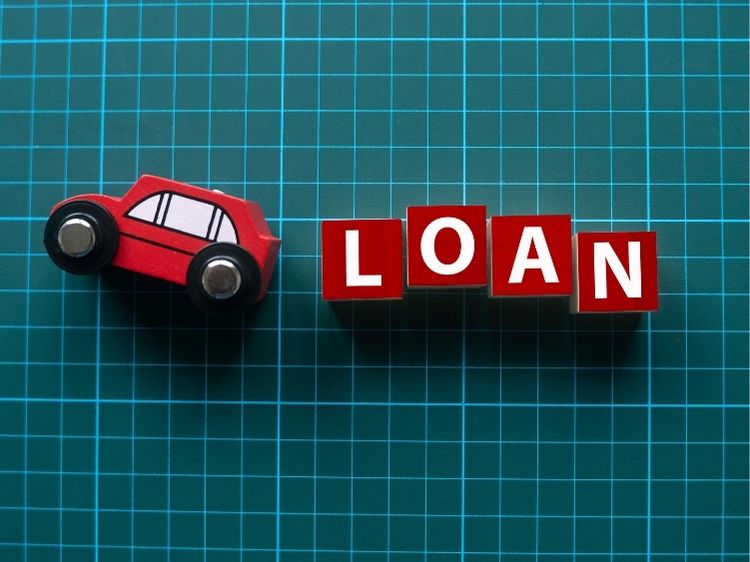Why Understanding Car Loans Matters
Thinking about buying a car but unsure how to finance it? You’re not alone! Car loans are one of the most common ways to purchase a vehicle, whether it’s new or used. But, let’s be honest—navigating loan jargon, interest rates, and repayment terms can feel overwhelming. This guide will break it all down for you, ensuring you’re ready to hit the road without financial headaches. Buckle up!
What Is a Car Loan?
A car loan is a type of personal loan specifically designed to help you purchase a vehicle. It’s simple—you borrow money from a lender, buy the car, and then pay the lender back over time, typically with interest.
Key Features of a Car Loan:
- Loan Term: Usually ranges from 12 to 72 months.
- Interest Rate: Based on factors like credit score, loan term, and lender policies.
- Down Payment: Most loans require an upfront payment, often 10-20% of the car’s price.
- Monthly Payments: Fixed amounts you pay back each month.
Types of Car Loans
Before jumping into an agreement, it’s important to know your options. Not all car loans are created equal!
- Secured Car Loans:
- Backed by collateral (your car).
- Lower interest rates but risk of repossession if payments aren’t made.
- Unsecured Car Loans:
- No collateral required.
- Higher interest rates due to increased lender risk.
- Fixed-Rate Loans:
- Interest rate stays the same throughout the loan term.
- Predictable monthly payments make budgeting easier.
- Variable-Rate Loans:
- Interest rates fluctuate based on market conditions.
- Can save you money if rates drop but could increase payments if rates rise.
How to Qualify for a Car Loan
Getting a car loan isn’t as intimidating as it seems, especially when you know what lenders look for.
Steps to Qualify:
- Check Your Credit Score:
A higher score equals better rates. Aim for a score above 700 for the lowest interest rates. - Calculate Your Budget:
Use the 20/4/10 rule:- Put down at least 20%.
- Finance the car for no more than 4 years.
- Keep total monthly car expenses under 10% of your income.
- Compare Lenders:
Don’t settle for the first offer. Shop around to find the best rates and terms. - Gather Documentation:
- Proof of income (pay stubs, tax returns).
- Personal identification.
- Vehicle details (if buying used).
Tips to Get the Best Car Loan Rates
Who doesn’t love saving money? These tips will help you snag the best rates possible:
- Improve Your Credit Score: Pay down debts and avoid late payments.
- Shop Around: Compare rates from banks, credit unions, and online lenders.
- Opt for a Shorter Loan Term: While monthly payments may be higher, you’ll save on interest.
- Make a Larger Down Payment: Reducing the loan amount lowers your risk to the lender.
- Negotiate: Don’t be afraid to haggle with dealerships and lenders.
Car Loans vs. Leasing: What’s the Difference?
Ever wondered if leasing is a better option than getting a car loan? Let’s break it down:
| Feature | Car Loan | Leasing |
| Ownership | You own the car. | You’re essentially renting it. |
| Monthly Payments | Higher, but builds equity. | Lower, but no equity. |
| Mileage Limits | None | Strict limits apply. |
| Flexibility | Sell or trade anytime. | Must complete lease term. |
If you prefer long-term value and customization, a car loan is the way to go. If you enjoy driving new cars every few years, leasing might suit you better.
FAQs About Car Loans
- What credit score do I need to get a car loan?
Most lenders prefer a score of 600 or higher. However, scores above 700 often qualify for the lowest interest rates. - Can I get a car loan with bad credit?
Yes, but expect higher interest rates. Consider improving your credit score or applying with a co-signer. - Is it better to finance through a dealership or a bank?
Banks typically offer lower rates, but dealerships may provide convenient in-house financing options. Compare both to decide. - How much should I put down on a car loan?
A down payment of 10-20% is recommended to reduce the loan amount and interest paid over time. - Can I pay off my car loan early?
Yes, but check your loan agreement for prepayment penalties. Some lenders charge a fee for early repayment.
Summary: Drive Smart with the Right Car Loan
Car loans don’t have to be daunting. By understanding the basics, comparing your options, and staying financially savvy, you’ll be well-equipped to choose the best loan for your needs. Remember, it’s not just about getting the keys to your dream car—it’s about driving off with confidence, knowing you’ve made a smart financial decision.
Authoritative Links:
- https://www.consumerfinance.gov/
- https://www.bankrate.com/auto/
- https://www.edmunds.com/
- https://www.cars.com/
- https://www.nerdwallet.com/





